
Some people didn’t have to win a beauty pageant to be called “Miss Kyoto.”
If you’ve made a moderate amount of Japanese social or business acquaintances, or even just enjoy video games or anime set in Japan, odds are there are a few family names you’re familiar with. Sato and Suzuki are by far the most common surnames in Japan, with others such as Takahashi and Tanaka also showing up very frequently.
But what about the other end of the spectrum? Myoji Yurai Net, a Japanese surname database, recently released the results of a study in which researchers analyzed data from government statistics and phone books in order to compile a list of the 30 rarest Japanese family names.
Let’s take a look at the rankings:
30. Ikari / 五十里
Meaning: 50 villages
While the meaning might not be so dramatic, when written with different kanji characters, ikari can also mean “anger” or “anchor.” According to Myoji Yurai Net’s study, approximately 1,300 people across Japan bear this surname.
29. Shio / 塩
Meaning: salt
To clarify, this isn’t a name that etymologically traces back to the word “salt,” but one that’s written and pronounced exactly like shio, the Japanese word for table salt.
28. Shikichi / 敷地
Meaning: building site
27. Tsukumo / 九十九
Meaning: 99
99 what? Why not 100? We have so many questions.
26. Ichibangase / 一番ケ瀬
Meaning: first rapids, first shoals
25. Myoga / 茗荷
Meaning: Japanese ginger
Myoga is the first of a handful of agriculture-based names on the list, highlighting how much of Japan’s populace was involved in farming prior to the end of the feudal era.
24. Kai / 買
Meaning: shell, shellfish
23. Jinja / 神社
Meaning: Shinto shrine
In olden times, Shinto shrines were often the center of culture and activity in their respective communities, and thus a part of the personal identity of those who lived nearby. But while many Japanese surnames contain the kanji 神, meaning “god” or “divine,” the rather on-the-nose Jinja is far less common, being the family name of only about 330 people.
22. Akasofu / 赤祖父
Meaning: red grandfather
While many Japanese names are reflections of the natural environment, ones that reference people are much rarer, much less one with a specific color.
21. Kon / 根
Meaning: root
“Hey, wait a second,” anime fans are saying. “What about esteemed Perfect Blue, Paprika, and Tokyo Godfathers director Satoshi Kon?” Actually, the late director’s surname was written with the kanji 今, meaning “now,” and while that’s also a somewhat unusual family name, it’s not as rare as this plant-based one.
20. Hirawa / 平和
Meaning: plain of harmony
19. Botan / 牡丹
Meaning: peony
References to trees are common in Japanese names. Matsuda means “field of pines,” for example, while Sugimoto is “original cedar.” Flowers are less common, though, especially when the name matches up exactly with the name of the blossom.
18. Taue / 田植
Meaning: rice planting
17. Keana / 毛穴
Meaning: (skin) pores
16. Mizoroge / 御菩薩池
Meaning: honored Bodhisattva pond
15. Senju / 先生
Meaning: teacher
While senju is a pretty old-school term to use for an educational instructor, the kanji characters 先生 are the exact same ones used to write sensei, the standard way of addressing schoolteachers and doctors in Japanese.
14. Suisha / 水車
Meaning: water wheel, mill
13. Kyoto / 京都
Meaning: Kyoto, Japan’s former capital city
Surnames that are also place names aren’t entirely uncommon in Japan. In many cases, though, they’re coincidences born out of a reference to the natural landscape serving as inspiration for the name of a family and location. Chiba (“thousand leaves”) and Matsumoto (“original pine”) are often-heard family names, but they’re also a prefecture and city, respectively.
On the other hand, Kyoto means “capital city,” making this a case of a family name being derived from the name of an already established place.
12. Momo / 百百
Meaning: Hundred hundred
Momo is also the Japanese word for “peach,” but in the case of the fruit, the kanji 桃 is used instead. Making things even odder is that Japanese already has a word for a hundred hundreds, man, which means “ten thousand.”
11. Wamuro / 和室
Meaning: harmonious room
While the original intent was likely an auspicious allusion to a peaceful home and family, 和室 can also be read as washitsu, a Japanese-style room with tatami reed flooring.
10. Tokei / 時計
Meaning: watch, clock
9. Nosaku / 農作
Meaning: agricultural products
8. Kajiyashiki / 鍛冶屋敷
Meaning: blacksmith’s mansion
7. Gogatsu / 五月
Meaning: May (the month)
Only about 30 people in Japan have this family name. Unfortunately, no data is availabe on how many of them are women with the given name Satsuki, which can also mean “May” and be written with the same 五月 kanji.
6. Hime / 姫
Meaning: princess
5. Higasa / 日傘
Meaning: parasol
4. Iekami / 家神
Meaning: home god
3. Dango / 団子
Meaning: dumpling
We’ve seen a couple of foodstuffs on the list so far. This name, though (which like all of the top three is only held by about 10 people in Japan), is the first dessert.
2. Hinode / 日ノ出
Meaning: sunrise
1. Mikan / 蜜柑
Meaning: Japanese mandarin orange
Finally, we wrap up with one last edible, and it’s a fitting one, as the small, sweet mikan makes for a healthy yet sweet snack after a meal.
Who knew linguistics could make us so hungry?
Source: Myoji Yurai Net
Top image: Pakutaso
Insert images: Pakutaso, Wikipedia/Nesnad, Pakutaso (2, 3, 4, 5, 6, 7, 8), Hanazakari no Mori
[ Read in Japanese ]

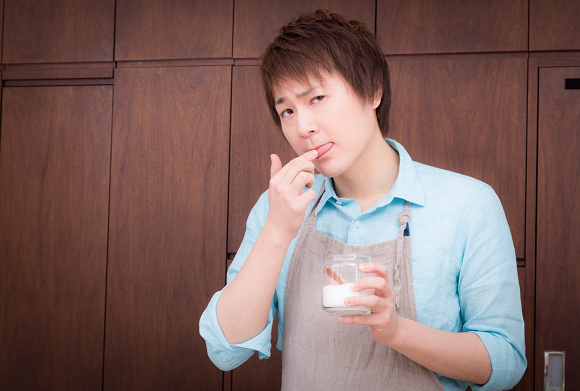
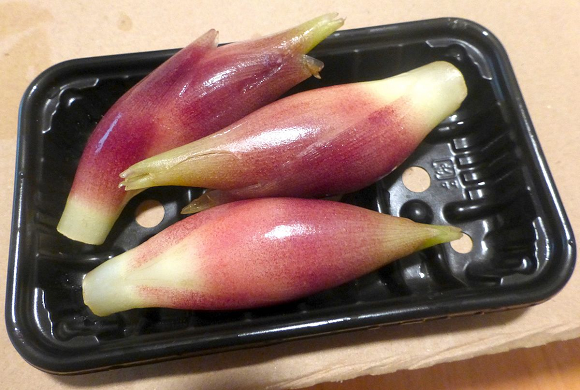
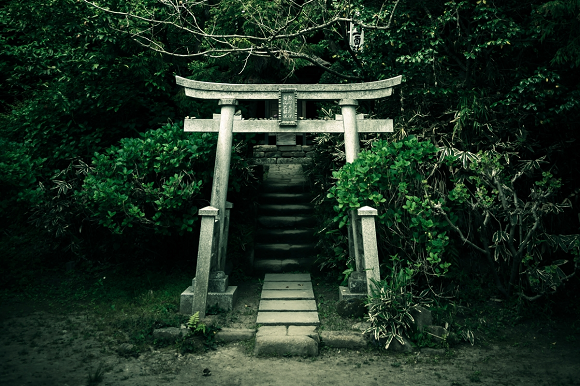
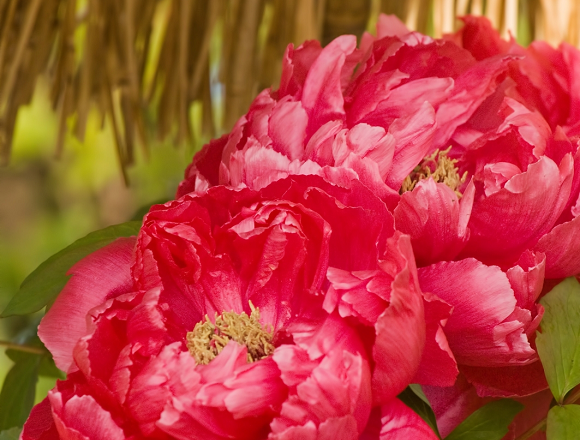

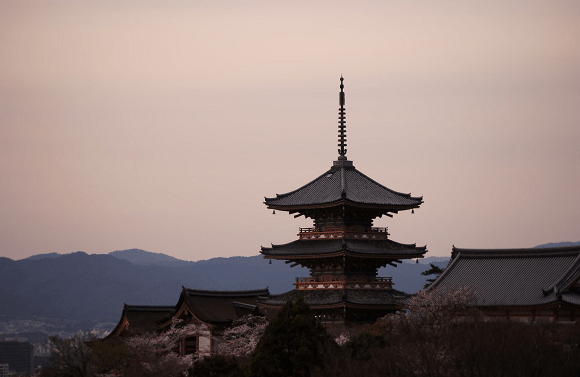
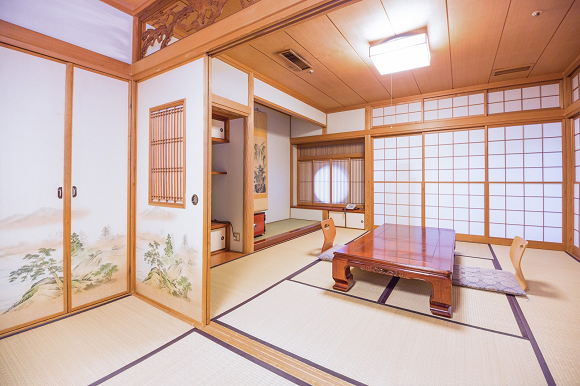
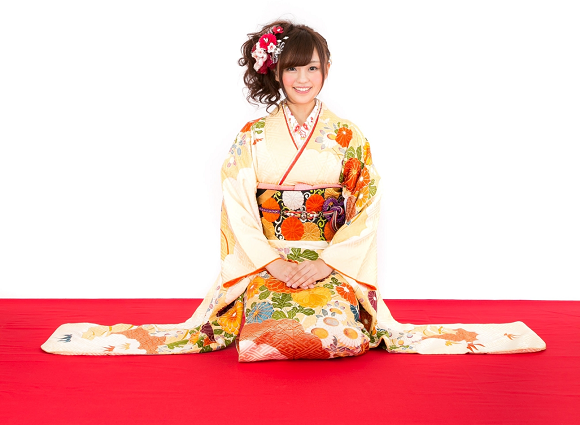
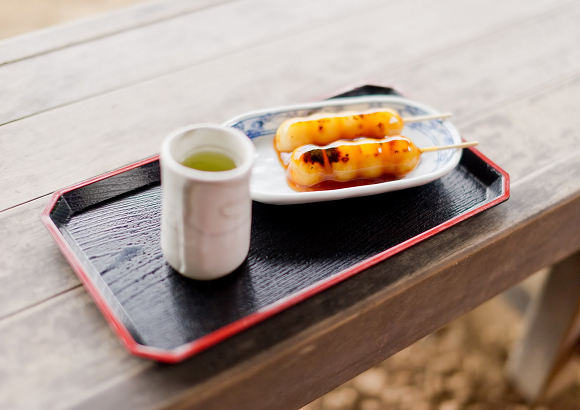
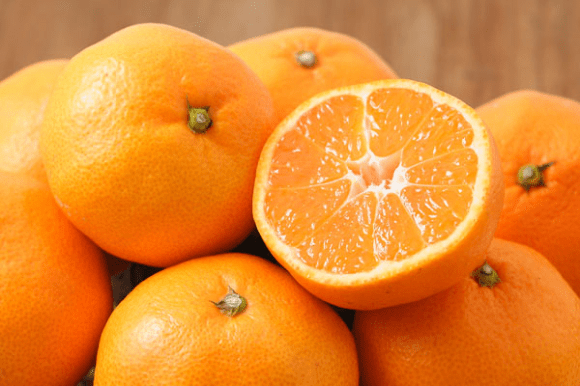
 Lingo mambo! Spanish YouTuber teaches us 14 Taiwanese pet phrases【Video】
Lingo mambo! Spanish YouTuber teaches us 14 Taiwanese pet phrases【Video】 An interview with two Japanese dating service scam sakura【Interview】
An interview with two Japanese dating service scam sakura【Interview】 Japanese tourism poster with elderly man saying phrase for “I’ll have sex with you” puzzles Japan
Japanese tourism poster with elderly man saying phrase for “I’ll have sex with you” puzzles Japan Draft bill proposal seeks to curtail unconventional “kirakira” kanji name readings in Japan
Draft bill proposal seeks to curtail unconventional “kirakira” kanji name readings in Japan Playing with middle-aged men: What’s with the new rash of “oji-san” smartphone apps?
Playing with middle-aged men: What’s with the new rash of “oji-san” smartphone apps? Demon Slayer: Kimetsu no Yaiba gets new roller coaster attractions and food at Universal Studios Japan
Demon Slayer: Kimetsu no Yaiba gets new roller coaster attractions and food at Universal Studios Japan How to order snacks on a Shinkansen bullet train in Japan
How to order snacks on a Shinkansen bullet train in Japan Japan’s new difficult-to-drink-from beer glass protects your liver, but it’s a brutal experience
Japan’s new difficult-to-drink-from beer glass protects your liver, but it’s a brutal experience Nintendo history you can feel – Super NES, N64, and GameCube controllers become capsule toys
Nintendo history you can feel – Super NES, N64, and GameCube controllers become capsule toys New samurai glasses are Japan’s latest weird must-have souvenir
New samurai glasses are Japan’s latest weird must-have souvenir McDonald’s adds a new Cheese Bacon Potato Pie to its menu in Japan for a limited time
McDonald’s adds a new Cheese Bacon Potato Pie to its menu in Japan for a limited time Japan’s foreign population reaches historic milestone following largest-ever single-year surge
Japan’s foreign population reaches historic milestone following largest-ever single-year surge Cosmetic wizardry: Asian women removing makeup to reveal their true selves goes viral【Video】
Cosmetic wizardry: Asian women removing makeup to reveal their true selves goes viral【Video】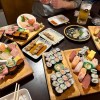 Shinjuku izakaya’s all-you-can-eat-and-drink plan is one of Tokyo’s best secret cheap eats
Shinjuku izakaya’s all-you-can-eat-and-drink plan is one of Tokyo’s best secret cheap eats High-fashion Totoro cuddle purse is like an elegant stroll in the forest【Photos】
High-fashion Totoro cuddle purse is like an elegant stroll in the forest【Photos】 Hello, cosmetics! Clinique teams up with Hello Kitty this summer for first-time collaboration
Hello, cosmetics! Clinique teams up with Hello Kitty this summer for first-time collaboration “The most Delicious Cup Noodle in history” – Japan’s French Cup Noodle wins our heart【Taste test】
“The most Delicious Cup Noodle in history” – Japan’s French Cup Noodle wins our heart【Taste test】 Starbucks releases a cute Frappuccino and Unicorn Cake…but not in Japan
Starbucks releases a cute Frappuccino and Unicorn Cake…but not in Japan Kyoto Tower mascot termination reveals dark side behind cute Japanese characters
Kyoto Tower mascot termination reveals dark side behind cute Japanese characters McDonald’s Japan’s Soft Twist Tower: A phantom ice cream only sold at select branches
McDonald’s Japan’s Soft Twist Tower: A phantom ice cream only sold at select branches Yabai Ramen: What makes this Japanese ramen so dangerous?
Yabai Ramen: What makes this Japanese ramen so dangerous? Finally! Nintendo Japan expands Switch 8-bit controller sales to everybody, Online member or not
Finally! Nintendo Japan expands Switch 8-bit controller sales to everybody, Online member or not Japanese government wants to build luxury resorts in all national parks for foreign tourists
Japanese government wants to build luxury resorts in all national parks for foreign tourists To combat declining birth rate, Japan to begin offering “Breeding Visas” to foreigners
To combat declining birth rate, Japan to begin offering “Breeding Visas” to foreigners 10 things you should buy at 7-Eleven in Japan
10 things you should buy at 7-Eleven in Japan Studio Ghibli releases anime heroine cosplay dresses that are super comfy to wear
Studio Ghibli releases anime heroine cosplay dresses that are super comfy to wear Woman charged for driving suitcase without a license in Osaka
Woman charged for driving suitcase without a license in Osaka Studio Ghibli unveils My Neighbour Totoro miniature house model
Studio Ghibli unveils My Neighbour Totoro miniature house model Kyoto experiencing problems with foreign tourists not paying for bus fares, but not on purpose
Kyoto experiencing problems with foreign tourists not paying for bus fares, but not on purpose Fighting mild hunger with a Japanese soda that turns into jelly in the stomach【Taste test】
Fighting mild hunger with a Japanese soda that turns into jelly in the stomach【Taste test】 Studio Ghibli’s Howl’s Moving Castle tapestry unveiled in Japan for first time
Studio Ghibli’s Howl’s Moving Castle tapestry unveiled in Japan for first time McDonald’s new Happy Meals offer up cute and practical Sanrio lifestyle goods
McDonald’s new Happy Meals offer up cute and practical Sanrio lifestyle goods Sales of Japan’s most convenient train ticket/shopping payment cards suspended indefinitely
Sales of Japan’s most convenient train ticket/shopping payment cards suspended indefinitely Sold-out Studio Ghibli desktop humidifiers are back so Totoro can help you through the dry season
Sold-out Studio Ghibli desktop humidifiers are back so Totoro can help you through the dry season Japanese government to make first change to romanization spelling rules since the 1950s
Japanese government to make first change to romanization spelling rules since the 1950s Foreigner’s request for help in Tokyo makes us sad for the state of society
Foreigner’s request for help in Tokyo makes us sad for the state of society Ghibli founders Toshio Suzuki and Hayao Miyazaki contribute to Japanese whisky Totoro label design
Ghibli founders Toshio Suzuki and Hayao Miyazaki contribute to Japanese whisky Totoro label design Doraemon found buried at sea as scene from 1993 anime becomes real life【Photos】
Doraemon found buried at sea as scene from 1993 anime becomes real life【Photos】 Tokyo’s most famous Starbucks is closed
Tokyo’s most famous Starbucks is closed Princesses, fruits, and blacksmiths: Study reveals the 30 most unusual family names in Japan
Princesses, fruits, and blacksmiths: Study reveals the 30 most unusual family names in Japan Japan’s top 20 flowery names for baby girls: love, hearts, and dreams
Japan’s top 20 flowery names for baby girls: love, hearts, and dreams 11 different ways to say “father” in Japanese
11 different ways to say “father” in Japanese Dodge the biggest problem of giving yourself a kanji name with these for-foreigner personal seals
Dodge the biggest problem of giving yourself a kanji name with these for-foreigner personal seals Hanazono Jinja Shrine: Lanterns, stalls and rakes at annual Tori no Ichi cock festival in Tokyo
Hanazono Jinja Shrine: Lanterns, stalls and rakes at annual Tori no Ichi cock festival in Tokyo “Family name researcher” discovers the most common full name in Japan
“Family name researcher” discovers the most common full name in Japan Japanese survey finds top 10 emoji that “make you look like an old man”
Japanese survey finds top 10 emoji that “make you look like an old man” Japanese mayor “Jo Baiden” becomes famous after U.S. election
Japanese mayor “Jo Baiden” becomes famous after U.S. election Mountain Dew opening the Mountain De Yu public bath house in Tokyo for Mountain Day
Mountain Dew opening the Mountain De Yu public bath house in Tokyo for Mountain Day Häagen-Dazs’ upcoming traditional Japanese sweets cafe in Tokyo has our mouths watering already
Häagen-Dazs’ upcoming traditional Japanese sweets cafe in Tokyo has our mouths watering already Tokyo’s newest mascot character: a smiling bright pink turd laid by Japan’s most famous dog【Vid】
Tokyo’s newest mascot character: a smiling bright pink turd laid by Japan’s most famous dog【Vid】 Jennifer Connelly sang a Japanese song that became a number one hit single in Japan 【Video】
Jennifer Connelly sang a Japanese song that became a number one hit single in Japan 【Video】 Twitter users say Japanese Prime Minister’s name is hiding in the kanji for Japan’s new era name
Twitter users say Japanese Prime Minister’s name is hiding in the kanji for Japan’s new era name Ōkami menu and merch coming to Capcom Cafe in June for limited time
Ōkami menu and merch coming to Capcom Cafe in June for limited time The only path to this Nagasaki Shinto shrine gets swallowed by the sea every day【Video】
The only path to this Nagasaki Shinto shrine gets swallowed by the sea every day【Video】
Leave a Reply